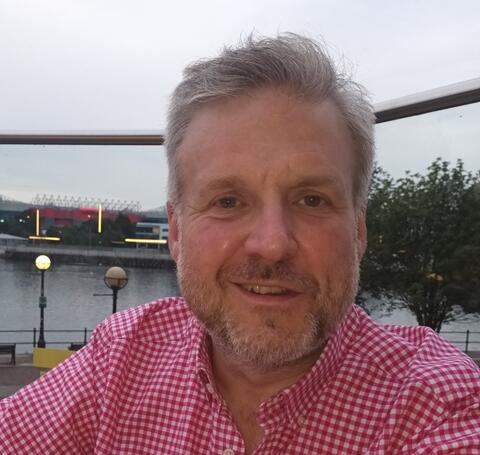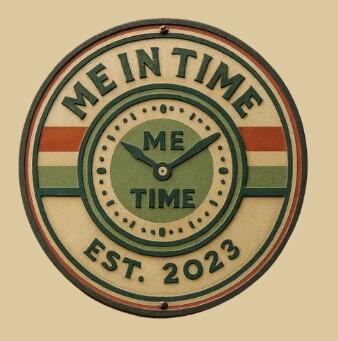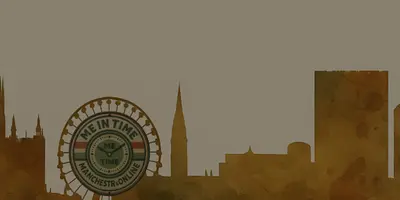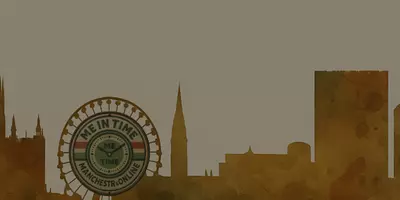
6 Nov 2025 ● Stuart Walker
Becoming a Counsellor: Reflections from Training to Practice (Part 1)

Introducing the Series
In this three-part reflective series, Integrative Therapist, Coach & Author, Stuart Walker revisits his own journey through training: from his Initial Learning Statement at the start of a Level 4 Diploma in Therapeutic Counselling, to the final rationale written at the end of the course, and finally a reflection written now — with a few more years, clients, and insights between then and now.
Through warmth, humour, and honesty, Stuart explores what it means to move from trainee to practitioner — the self-doubt, the small triumphs, and the gradual discovery that the work is never really “finished.” Each piece offers an intimate snapshot of learning in motion: how theory becomes practice, how presence deepens, and how counsellors continue to grow long after qualification.
Whether you’re just starting out, newly qualified, or years into practice, these reflections are a gentle reminder that we all begin somewhere — and that “becoming” is a lifelong process.
Part 1 – Where It All Began: My Initial Learning Statement
— Stuart Walker, Integrative Therapist, Coach & Author – still a work in progress
Opening the Folder
I wrote it with the best of intentions. Reading it back now feels like peeking into an old diary. There’s some seriousness, some nerves, and the occasional moment that makes me groan and smile in equal parts. But that’s what beginnings look like, isn’t it?
When I sat down to answer the very first question – “What do you expect the course to provide?” – I put things like a platform to qualify, the tools I might need, and guidance from peers and tutors. Sounds perfectly sensible. And yet, I can hear the subtext: “Please give me everything I need to succeed because I have absolutely no idea what I’m doing yet.”
Early Hopes and Hidden Fears
I also promised myself I’d take every opportunity, grab all the feedback, and throw myself into self-reflection. Reading that back, I can picture myself nodding seriously as I typed, not yet knowing just how much reflection and feedback was about to come my way.
My main concern was time. I was still working full-time, still juggling family life, and wondering if I could keep all the plates spinning. That word balance cropped up a lot. Spoiler: there is no perfect balance. Some weeks you limp, some weeks you sprint, and somehow you keep going.
I also worried about confidence. Would I be able to demonstrate my skills? Would I be able to show understanding? Underneath, I think what I really meant was: what if I’m not good enough? A feeling I now know was almost universal in my group. We just didn’t always admit it out loud.
Learning About Connection
When I turned to the bit about the group, I was very earnest. I said I wanted empathy, openness, honesty and non-judgement. I also wrote – and this really makes me smile – that I wasn’t there to make friends. “If I do then that will be a benefit I didn’t expect. If I don’t then that’s fine.”
Reading it now, I hear the defensive note. The truth is, I didn’t want to risk being disappointed. But of course, I did make friends. Not with everyone, but with enough people to share the journey.
I even anticipated sub-groups and cliques forming, which turned out to be true. That’s what happens when you put people together. It’s human. I also admitted, slightly sheepishly, that I might be opinionated or belligerent in debates. I promised myself I’d be more self-aware about that. Looking back, I admire the honesty. I wasn’t wrong.
The Myth of Being “Done”
When I got to learning styles, I said I liked to read or watch, then have a go myself. I even confessed that I wasn’t sure how much more I could be “squeezed emotionally” by journals or therapy. That line makes me laugh now. I genuinely thought I was already near the end of my self-discovery. I had already done Level 2 and Level 3 – there is only so much juice a lemon can hold.
Anyone who has been through counselling training will know: you’re never done being squeezed. Every year brings another layer. Every essay another mirror.
What I Thought Were Skills
I also wrote about my skills – reflecting, mirroring, listening, using silence, reading body language – all those familiar phrases. It was clear I was still thinking of skills as things you do. Later, I’d learn that the real magic lies in who you are with the client, not just the techniques you pull out of the bag.
A Fresh Start
And then motivation. This bit still feels warm to read. Redundancy was coming, and I wanted a new direction. My wife was studying too, and we had dreams of volunteering abroad together. There’s no tongue-in-cheek here – just a man genuinely excited about starting again.
Looking Back with Kindness
So what do I see now when I read that early Learning Statement? I see nerves, hopes, and someone trying to sound professional while quietly worrying if he could pull it off.
I see a trainee counsellor on the edge of a big journey, about to learn that time management really means self-care, and confidence comes from keeping going even when you wobble.
And I can look back with real warmth. No cringing, no eye-rolling. Just appreciation for the man I was then, doing the best he could with what he had.

An Invitation to Reflect
If you’re writing your own Learning Statement now, or you’ve just dug one out from years ago, maybe ask yourself: what does it show you about the counsellor you were then, and the one you’re becoming?
— Stuart Walker
Recommended Reading:
- On Becoming a Person – Carl Rogers
- Working at Relational Depth in Counselling and Psychotherapy – Mick Cooper & Dave Mearns
- Counselling for Toads – Robert de Board
- The Gift of Therapy – Irvin D. Yalom


